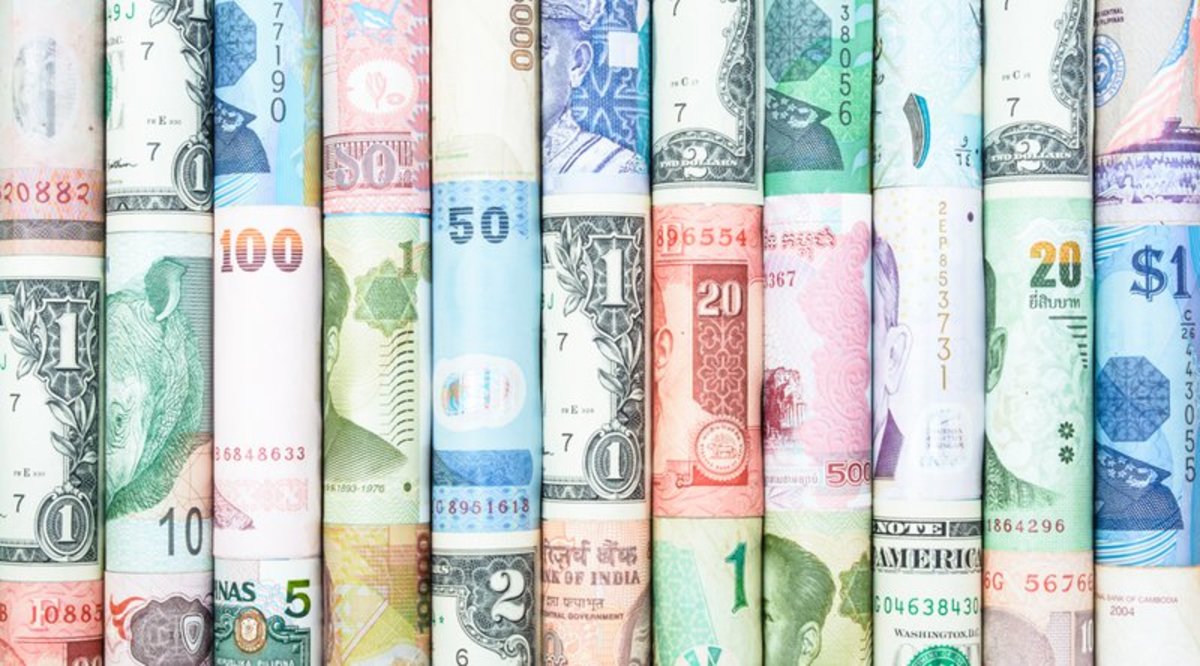
Fiat money has long been the dominant form of exchange for goods and services. But now, amid the throes of global economic and political unrest, new questions have emerged as to whether “cash is still king” in both developed and developing nations.
The root of this discourse is being played out with great significance worldwide. India, one of the world’s fastest growing nations, is struggling with the effects of a demonetization crisis that threatens to cripple its promising economic advancements. In China, currency speculators are facing a weakening yuan. Venezuelans are under siege due to a government cash crisis and soaring inflation. And in Mexico, the peso has declined precipitously on the heels of the U.S. election of President Donald Trump.
This assault on fiat is impacted by unsound policy decisions on the part of governments across the world. Cash is an open form of exchange, widely accepted and codified by central authorities. It also freely flows into the hands of nefarious actors, which, due to terrorist and other concerns, makes governments uneasy.
As economic disruption continues to have a chilling effect on cash economies, digital currencies, which enable secure, peer-to-peer payments without the interference of central governments or banks, are gaining increased attention. Bitcoin, the oldest and most recognized digital currency, had a major rise in value in 2016. Some attribute this rise to increasing demand in countries most affected by currency volatility and economic uncertainty.
In an exclusive interview with Bitcoin Magazine, Steven J. Ehrlich, associate at the New York–based Spitzberg Partners LLC, weighed in on changes taking place within the prevailing global order and cash economy. Spitzberg Partners is a consultancy firm that helps clients to develop and execute market entry and M&A strategies for Europe, North America, and beyond.
For starters, Ehrlich says that he is hesitant to characterize these developments as a “war on cash,” as some media outlets have suggested, since that, he says, would imply “a concerted and coordinated effort.” At the same time, he states that our global economy is in the middle of a tenuous recovery; thus, growth is not evenly distributed.
Corruption still exists, Ehrlich laments, saying that at times, “monetary policy in a given country is primarily intended to support the political aims of a government rather than the economy as a whole.”
Says Ehrlich: “People want to feel in control of their holdings to the greatest extent possible, and at the very least would like stability and clear headings within their respective political climates. The peso moving up and down with every tweet sent by then-candidate and now-President Trump is the quintessential example of how that is not always the case.”
Will Bitcoin Emerge?
Ehrlich says that given shifting global dynamics, it’s no secret that bitcoin is being increasingly seen by many as a safe harbor or even a hedge for users in distressed economies (Venezuela, Argentina) as well as those with very strict currency controls (China).
Nevertheless, he is still skeptical of bitcoin’s potential as an alternative form of currency for a couple of reasons. First, the pain point, he says, for the majority of people wanting to use cash or credit cards is not deep enough to force them to change their habits. “If we use Geoffrey Moore’s ‘Crossing the Chasm’ example, I find it difficult to see how bitcoin moves from innovators and early adopters to an early majority of users.”
Continues Ehrlich: “If it is ever to become a widely used currency, the [bitcoin] fungibility issue would still need to be solved. I believe that every bitcoin (or any other cryptocurrency) would have to be indistinguishable from any other, or else people may be hesitant to accept those coins as remuneration. It could also lead to different prices for different bitcoins depending on their past.”
He does admit that it’s impossible to ignore bitcoin’s performance over the course of 2016, and that its current positioning as a largely uncorrelated asset is very enticing.
Cautionary Tales
For Ehrlich, the first point of caution is government regulation:
“Chinese officials have outsize influence on the market, but right now they largely aim to maintain ‘strategic ambiguity’ as it relates to regulating the market. While they themselves cannot shut down Bitcoin, if they moved aggressively against the infrastructure there, it would be very damaging to the ecosystem. Additionally, in my opinion, Bitcoin regulations throughout other parts of the world — particularly as they pertain to commerce — have still been relatively light due to its comparatively small market capitalization. But should there be an uptick in use, I’d expect governments to become much more engaged.”
A second potential hurdle that Ehrlich notes is the possibility of another major hack of a central player, though the industry has been able to weather Mt. Gox, Bitfinex and Bitstamp so far. And he concedes that if it is ever proven that Bitcoin was used to facilitate a terrorist attack, he would expect governments to move very hard and swiftly against exchanges and money service businesses.
Additionally, he suggests that a damaging “High Impact/Low Probability” event such as a potential DAO/hard fork incident with Bitcoin could occur. “While I do not expect this to happen, especially in the near future, scalability and governance issues will likely not go away even if today’s hurdles are cleared. There also may come an issue or time when participants decide to create or even accidentally fall into competing Bitcoin networks. This is one issue that gold hasn’t had to deal with.”
When asked for his prognostication regarding the future of cash, Ehrlich responded:
“I do feel like cash is becoming a bit of an antiquated institution. I carry no more than a couple of dollars on me at any given time. The real question is whether or not our virtual currency future will be decentralized. In either circumstance, I would still hope that the currency would be fungible because on privacy grounds alone people would be hesitant to accept anything to the contrary. Governments could still benefit from ensuring that money does not simply disappear into thin air, which will assist with AML/KYC investigations and tax collection.”
Concludes Ehrlich: “In my opinion the likeliest scenario is one where central banks issue digital versions of their currencies, as the prosecution of monetary policy remains a core government function and is not something that they want to cede.”










